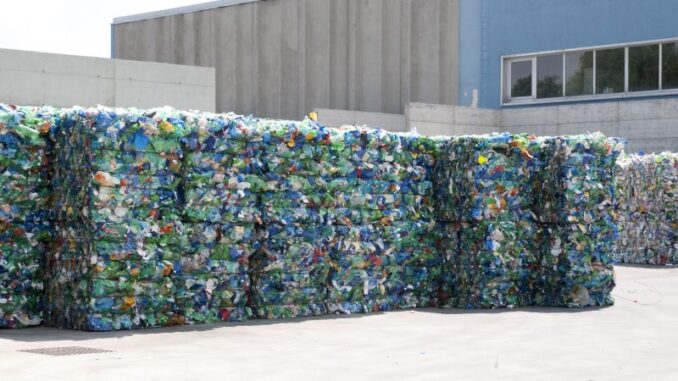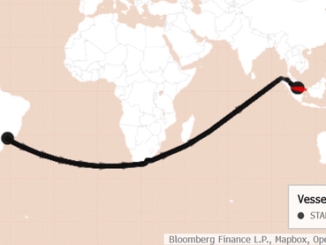
The EU is considering defining post-consumer plastic waste as “plastic waste placed on the market of a Member State or a third country” – a definition which could threaten the entire recycling industry in Europe, write Lauriane Veillard and Joan Marc Simon.
Lauriane Veillard is Chemical Recycling & Plastic-to-Fuels Policy Officer at Zero Waste Europe and Joan Marc Simon is Director-Founder of Zero Waste Europe.
Not so long ago, the EU, like much of the Western world, used to export a significant amount of its plastic waste to Asia, primarily to China. It took several years for the Chinese to realise the environmental and social impact of being the world’s trash can. Consequently, in 2017, China closed its doors to plastic waste imports. Ironically, only a few years later, the EU could find itself becoming China’s plastic trash can.
In the ongoing negotiations regarding the Packaging and Packaging Waste Regulation, the EU is considering defining post-consumer plastic waste as “plastic waste placed on the market of a Member State or a third country.” Such a definition is crucial to determine if the targets for recycled content for plastic packaging should be met with waste originating from the EU or around the world.
While common sense and environmental logic prioritise proximity and precautionary principles, what is worrying is that some powerful stakeholders are arguing that limiting recycled content to European waste is restrictive to certain supply chains, and is in breach of trade agreements. From a free-trade perspective, the EU could continue to allow recycled plastic from abroad to enter the EU, but environmentalists have a right to ask, “Surely this should not be allowed to count towards the recycled content obligation?”
Currently, recycled content made in Europe cannot compete with non-EU recycled content. This is partly due to the higher costs of recycling in Europe but mostly because there is little proof that the foreign recycled plastic is actually of recycled origin and not a mix of recycled and virgin content, which is cheaper than recycled.
The current verification system, which relies on the producer to self-declare, is insufficient at best. A revealing fact about the quality of Chinese recycled content is that China itself doesn’t allow the use of recycled plastic for its own food contact applications… but in Europe, we trust what they say and not what they do.
Another worrying factor is the unprecedented buildup of petrochemical capacity in the US, Middle East, Asia, and Africa. The lion’s share of these petrochemicals goes to new plastic, and this oversupply is pushing the prices of virgin plastic down, making recycling plastic comparatively more expensive. Plastic recycling in Europe can only have a viable business model if recycled content in new products originates from European plastic waste. Allowing unfair competition from abroad to meet the EU recycled content targets will not only destroy the EU’s plastic recycling industry and put the health of Europeans at risk but will also undermine Europe’s circularity agenda and climate neutrality commitment, by driving up incineration, and increasing our CO2 emissions.
The EU should prioritise closing the loop in Europe, and for this, only European post-consumer plastic waste should be allowed to count towards recycled content targets. For the same reason, we should not treat the rest of the world as our trash can; we should not turn the EU into another country’s recycling bin.
ENB Top News
ENB
Energy Dashboard
ENB Podcast
ENB Substack



